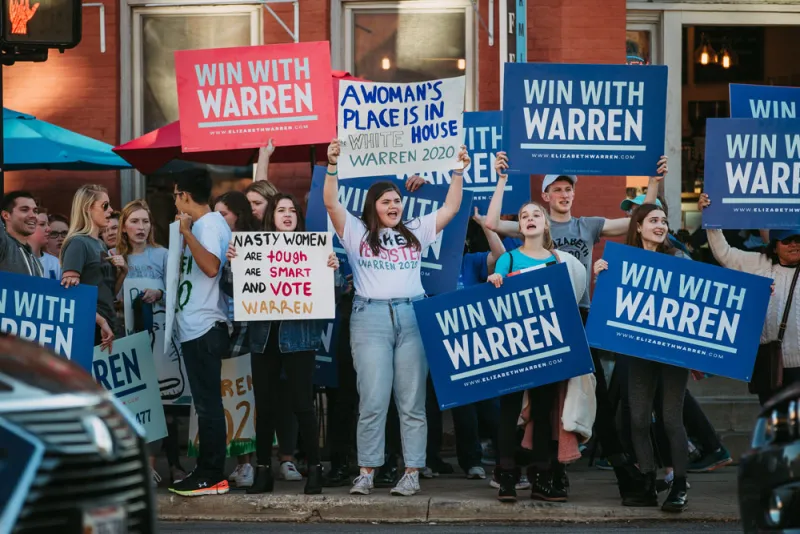With the next U.S. presidential election just a year away, institutional investors are growing worried about how the result will impact their portfolios — specifically, their private equity allocations.
Sixty-nine percent of limited partners surveyed by placement agent and advisory firm Eaton Partners said they were concerned about “anti-private equity rhetoric” by some presidential candidates. The private equity industry has faced criticism from leading democratic hopefuls, including Senator Elizabeth Warren, who recently introduced the “Stop Wall Street Looting Act” to broadly regulate private equity.
Senator Bernie Sanders, another Democratic frontrunner, has also been outspoken about private equity, tweeting in July that “we must ban private equity funds and Wall Street vulture funds from owning hospitals.” The tweet was in response to the planned closure of Hahnemannn University Hospital in Philadelphia, which was owned by private equity firm Paladin Healthcare.
Meanwhile, current president Donald Trump has repeatedly pledged to address the tax break for carried interest, although the so-called loophole was untouched by 2017’s tax reform.
[II Deep Dive: Private Equity Managers Are ‘Running a Grift,’ Pennsylvania Treasury Says]
Despite their concerns, only about a third of the 62 allocators polled by Eaton Partners said they believed a Democratic candidate would win the 2020 election. Fifteen percent predicted that Elizabeth Warren would be the next president, while another 15 percent think it will be Joe Biden.
The majority — about 65 percent — said they believe Trump will be re-elected.
Other geopolitical concerns voiced by limited partners in the Eaton Partners survey included uncertainty around Britain’s exit from the European Union and the potential escalation of the trade conflict between the U.S. and China.
Most reported that trade tensions would have no “immediate impact” on their investments in China. However, 43 percent said they were decreasing their direct foreign investment to the U.K. due to Brexit, up from 27 percent of allocators surveyed in July.
“Our latest survey clearly shows investors are expecting increased headwinds from several directions as we close out the year,” Jeff Eaton, partner at Eaton Partners, said in a statement. “We expect LPs to become even more selective and disciplined when allocating investment dollars to the private capital markets.”







